The University of Southampton is to lead a new EUR 11.6 million EU funded research project to develop new drought tolerate crops for bioenergy and bio-products.
Nov 12th, 2012
Read more
Information and Communication Technologies (ICTs) may allow a thirty percent reduction in electrical consumption in cities. This is what is demonstrated by a European research project.
Nov 12th, 2012
Read more
 An international and interdisciplinary team of scientists including Norbert Marwan from the Potsdam Institute for Climate Impact Research (PIK) presents a precisely dated, high resolution regional climate record for the past 2000 years that for the first time shows how the Maya political systems developed and disintegrated in response to climate change.
An international and interdisciplinary team of scientists including Norbert Marwan from the Potsdam Institute for Climate Impact Research (PIK) presents a precisely dated, high resolution regional climate record for the past 2000 years that for the first time shows how the Maya political systems developed and disintegrated in response to climate change.
Nov 9th, 2012
Read more
The prospect of creating clean, renewable hydrogen fuel is closer than ever after a breakthrough in our understanding of photosynthesis.
Nov 9th, 2012
Read more
 Europe is paving the way for a transition from fossil fuels toward sustainable forms of energy. EU-funded scientists are developing technology and tools to facilitate integration of electric vehicles (EVs) into electricity grids.
Europe is paving the way for a transition from fossil fuels toward sustainable forms of energy. EU-funded scientists are developing technology and tools to facilitate integration of electric vehicles (EVs) into electricity grids.
Nov 9th, 2012
Read more
An EU-funded consortium of European and Chinese research centres and industrial partners have advanced fuel cell (FC) technology. Such collaborations help foster common goals and ways of achieving them benefiting all involved.
Nov 9th, 2012
Read more
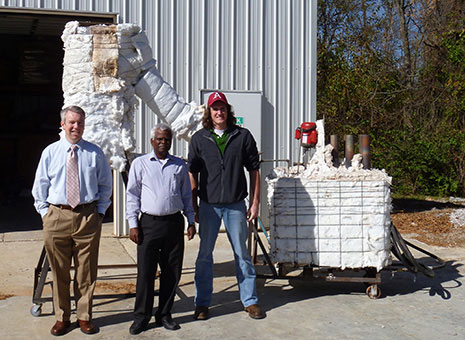 Engineering researchers at the University of Arkansas have developed a thermal energy storage system that will work as a viable alternative to current methods used for storing energy collected from solar panels. Incorporating the researchers? design into the operation of a concentrated solar power plant will dramatically increase annual energy production while significantly decreasing production costs.
Engineering researchers at the University of Arkansas have developed a thermal energy storage system that will work as a viable alternative to current methods used for storing energy collected from solar panels. Incorporating the researchers? design into the operation of a concentrated solar power plant will dramatically increase annual energy production while significantly decreasing production costs.
Nov 9th, 2012
Read more
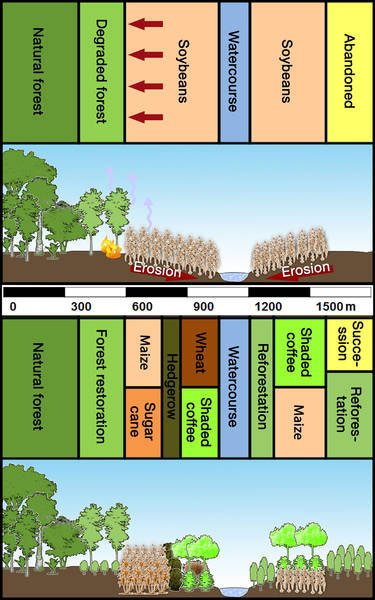 Intensive farming with a climate-friendly touch: Farming/woodland mix increases yields.
Intensive farming with a climate-friendly touch: Farming/woodland mix increases yields.
Nov 9th, 2012
Read more
A solar energy project at the University of Sheffield which is celebrating its second anniversary has shown almost all of the 2,000 systems in the scheme are "doing what they say on the tin".
Nov 8th, 2012
Read more
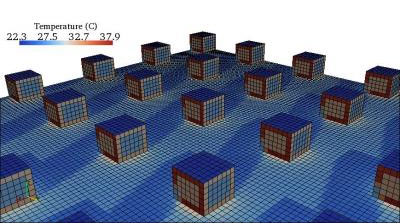 A push to replace old, heat-trapping paving materials with new, cooler materials could actually lead to higher electricity bills for surrounding buildings, engineers at the University of California, San Diego, have found.
A push to replace old, heat-trapping paving materials with new, cooler materials could actually lead to higher electricity bills for surrounding buildings, engineers at the University of California, San Diego, have found.
Nov 8th, 2012
Read more
 Berkeley Lab researchers combine old fermentation process for making explosives with new chemical catalysis to boost biofuel production.
Berkeley Lab researchers combine old fermentation process for making explosives with new chemical catalysis to boost biofuel production.
Nov 8th, 2012
Read more
 The world's first flight powered entirely by bio jet fuel has raised hopes for cleaner air travel and upped the prospects of a boon for farmers whose oilseed crops could supplant kerosene.
The world's first flight powered entirely by bio jet fuel has raised hopes for cleaner air travel and upped the prospects of a boon for farmers whose oilseed crops could supplant kerosene.
Nov 8th, 2012
Read more
Limiting the quantity of catalysts - substances that trigger a chemical reaction - used in the manufacture of pharmaceuticals is important, and research from the University of Gothenburg, Sweden, has now demonstrated that small quantities of copper work well in this respect.
Nov 8th, 2012
Read more
LightSail Energy, a developer of breakthrough energy storage technology, announced today that it has raised $37.3 million in Series D funding led by San Francisco investor Peter Thiel. Khosla Ventures, which incubated the company and led LightSail?s earlier rounds, Bill Gates, Innovacorp, and several other investors also participated in the round.
Nov 8th, 2012
Read more
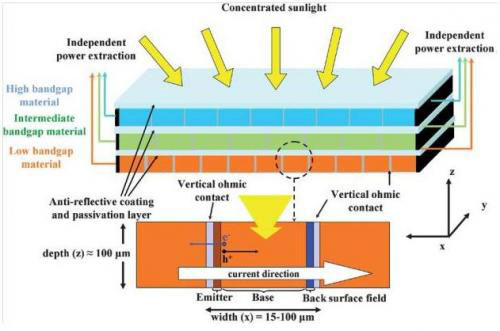 New cell architecture can exceed 40 percent conversion efficiency at intensities up to 10,000 suns.
New cell architecture can exceed 40 percent conversion efficiency at intensities up to 10,000 suns.
Nov 8th, 2012
Read more
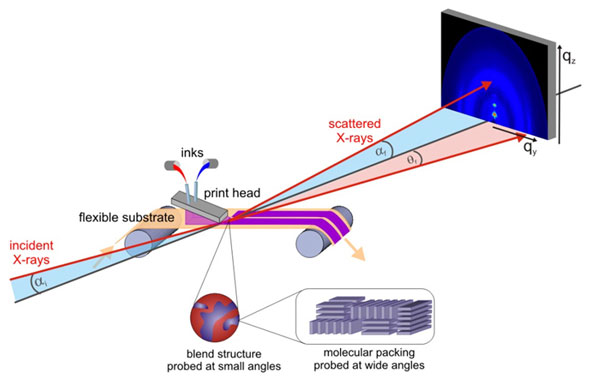 SLAC's Stanford Synchrotron Radiation Lightsource will play a central role in three research projects that seek cheaper materials and manufacturing techniques for solar panels, with support from a Department of Energy program called the SunShot Initiative.
SLAC's Stanford Synchrotron Radiation Lightsource will play a central role in three research projects that seek cheaper materials and manufacturing techniques for solar panels, with support from a Department of Energy program called the SunShot Initiative.
Nov 7th, 2012
Read more
A team of Cooperative Research Centre for Greenhouse Gas Technologies (CO2CRC) researchers based at the University of Melbourne have developed a novel method of capturing carbon dioxide that will reduce the cost of separating and storing the gas.
Nov 7th, 2012
Read more
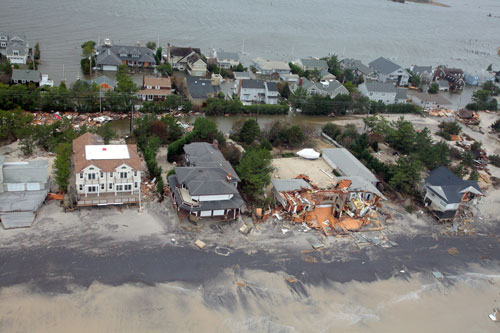 MIT researchers develop tool to assess regional risks of climate change, potential impacts on local infrastructure and planning.
MIT researchers develop tool to assess regional risks of climate change, potential impacts on local infrastructure and planning.
Nov 7th, 2012
Read more

 Subscribe to our Cleantech News feed
Subscribe to our Cleantech News feed








